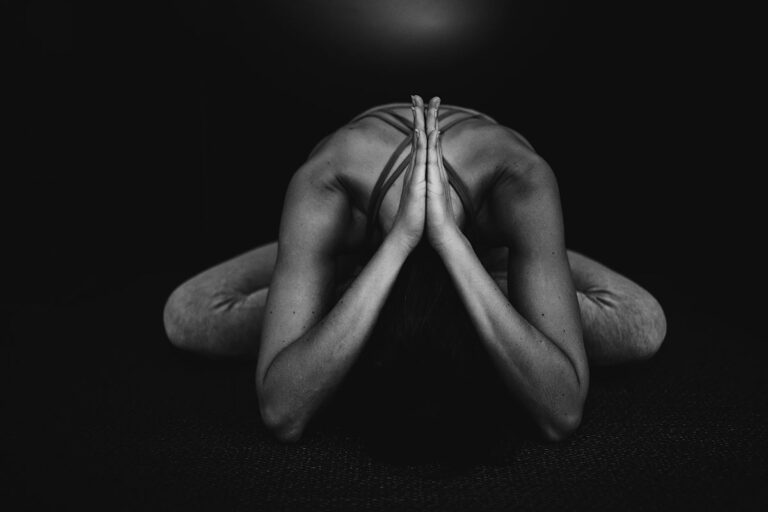Aging is inevitable — but how we age is not. Wrinkles, joint stiffness, fatigue, and forgetfulness are often accepted as normal parts of aging. But science is revealing that aging isn’t just about the years; it’s also about cellular health, stress levels, mobility, and mindset.
This is where yoga enters the conversation — not as a mythical fountain of youth, but as a powerful, holistic practice that slows, softens, and even reverses some effects of aging on the body and mind.
In this article, we’ll explore the science behind yoga’s anti-aging effects and how it supports healthy, graceful aging from the inside out.
🧬 1. Yoga Reduces Biological Age (Not Just Chronological Age)
While your chronological age is based on the calendar, your biological age refers to how well your body is functioning.
Scientific Insight:
Studies have shown that yoga practitioners often display younger biological markers than non-practitioners, including:
- Lower cortisol (stress hormone)
- Better heart rate variability (HRV)
- Enhanced lung capacity
- Increased telomerase activity (protects DNA from aging)
🧘 Key Point: A regular yoga practice can extend healthspan, not just lifespan.
🫀 2. Improves Circulation, Mobility & Joint Health
One of the hallmarks of aging is decreased circulation, stiff joints, and muscle atrophy. Yoga combats this through:
- Gentle, regular movement that lubricates joints and strengthens muscles
- Inversions and twists that stimulate blood flow to organs and the brain
- Postures like Downward Dog or Legs-Up-the-Wall that support lymphatic drainage
This reduces inflammation, improves nutrient delivery, and keeps the body fluid and functional.
🧘 “Motion is lotion” — yoga keeps your body supple and youthful.
🧠 3. Preserves Brain Health and Cognitive Function
Brain fog and memory loss are often seen as inevitable parts of aging. However, yoga and meditation offer powerful brain benefits:
- Boosts GABA and dopamine (neurotransmitters that support mood and focus)
- Increases gray matter in areas related to memory and emotional regulation
- Enhances neuroplasticity – the brain’s ability to rewire and adapt
- Reduces age-related cognitive decline and dementia risk
🧘 Just 12 minutes of daily meditation (e.g., Kirtan Kriya) has been shown to improve memory and cognitive function in older adults.
🧘♀️ 4. Strengthens Bones and Prevents Osteoporosis
With age, bone density naturally declines — especially in post-menopausal women. Yoga is a weight-bearing practice that helps:
- Stimulate bone formation
- Improve balance and coordination (to prevent falls)
- Engage muscles around joints, enhancing stability
Research Note:
A 10-year study published in Topics in Geriatric Rehabilitation showed that a 12-minute daily yoga sequence increased bone density in the spine and hips in older adults.
🌬️ 5. Supports a Youthful Nervous System and Heart
Yoga emphasizes calm, controlled breathing, which supports:
- Heart health by lowering blood pressure
- Improved lung capacity and oxygenation
- Balanced autonomic nervous system function (sympathetic vs. parasympathetic)
Regular practice improves resilience, reduces chronic inflammation, and promotes homeostasis — the body’s ability to regulate itself effectively with age.
💖 6. Enhances Skin Health and Cellular Detox
Aging skin is often a result of stress, dehydration, and poor circulation. Yoga naturally enhances skin health by:
- Increasing blood and oxygen flow to skin cells
- Flushing out toxins through lymphatic stimulation
- Reducing stress-related skin issues like eczema, acne, and dullness
- Supporting hydration and hormonal balance
🧘 Facial yoga and inversions like downward dog or supported shoulder stand can boost circulation to the face, creating a natural glow.
🧘♂️ 7. Keeps the Spirit Young
Beyond the body, yoga fosters a youthful attitude, energy, and outlook:
- Cultivates gratitude and joy
- Encourages curiosity and playfulness
- Promotes presence — the art of truly living in the now
- Builds resilience in the face of life’s changes
Many long-time yogis describe feeling more vibrant and alive in their 50s, 60s, and 70s than they did in their 30s — not because of what they’ve lost, but because of what they’ve gained in awareness and vitality.
🧘♀️ Suggested Youth-Preserving Yoga Routine
Here’s a gentle daily practice for anti-aging benefits:
| Practice | Duration | Purpose |
| Seated Breathwork | 5 min | Calm nervous system |
| Cat-Cow & Twists | 5–10 min | Spinal fluidity, digestion |
| Sun Salutations | 5–10 min | Circulation, joint health |
| Balance Poses | 5 min | Bone strength, coordination |
| Legs-Up-the-Wall | 5 min | Lymphatic flow, facial rejuvenation |
| Meditation | 10 min | Mind clarity, emotional peace |
🔬 Final Thought: Yoga Won’t Stop Time — But It Can Transform How You Age
“Age is an issue of mind over matter. If you don’t mind, it doesn’t matter.” — Mark Twain
While yoga won’t stop time or prevent all signs of aging, it offers a powerful shift: instead of fearing age, we embrace vitality. Instead of shrinking, we expand.
Yoga reconnects us with the timeless part of ourselves — the breath, the awareness, the spirit. And when those are alive and well, age becomes less about wrinkles and more about radiance, strength, and grace.



